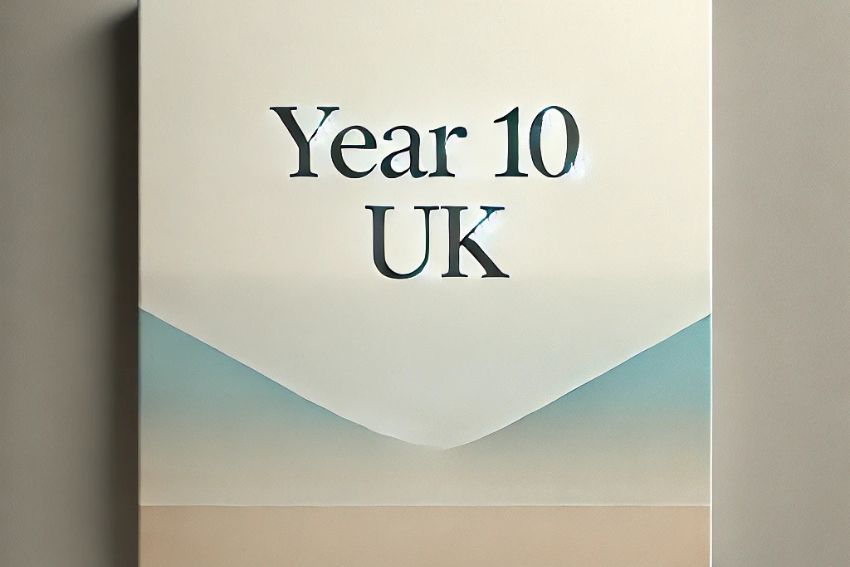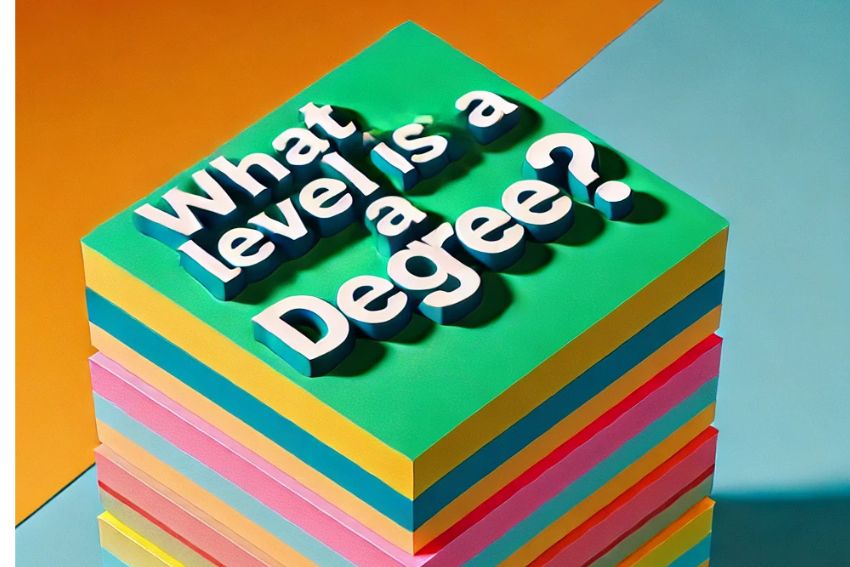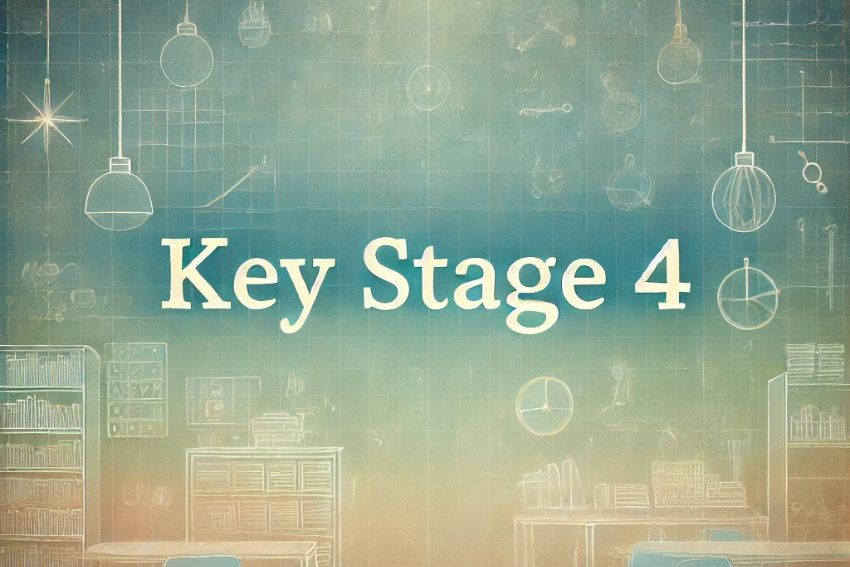Year 10 UK is an important milestone in the UK education system. It is the first year of Key Stage 4. This is a critical stage that prepares students for their GCSE exams. Understanding Year 10 is essential, as it sets the foundation for future academic success and career opportunities.
Our aims to help both students and parents understand the Year 10 curriculum. How it fits into the National Curriculum. And why this year is so significant in a student’s education journey. So, if you want to know those things, keep reading! We cover every important information for you!
What Is Year 10 UK?
Year 10 UK marks the beginning of Key Stage 4 in the UK education system. KS4 is a transition from Key Stage 3, where students focus on broad subject. Which is a more focused and specialised curriculum. Additionally, students start preparing for their GCSE exams, which they will sit at the end of Year 11.
Year 10 is important because it lays the groundwork for GCSE exams and shapes future educational choices. The subjects students choose in Year 10 play a significant role in determining their next steps, whether that involves further education, apprenticeships, or entering the workforce.
Core Subjects Of Year 10 UK
In Year 10, students focus on a set of core subjects that are mandatory and essential for their GCSE exams. These core subjects provide a solid foundation in key areas of knowledge and skills. As a result, students build a strong academic base for their future studies. Below is an overview of the core subjects studied in Year 10 UK and how they prepare students for their GCSEs:
| Subject | Lesson Allocation | Structure & Content | Purpose |
| English Language | 5-6 hours per week | Study of fiction and non-fiction texts, focusing on writing, reading, and analytical skills. Includes: writing essays, language techniques, and comprehension. | Prepares students for the English Language GCSE exam, testing analysis of texts and writing clarity. |
| English Literature | 5-6 hours per week | Study of novels, poetry, and plays. Key texts may include Romeo and Juliet, A Christmas Carol, and various poems. Emphasis on themes, characters, and literary techniques. | Prepares students for the English Literature GCSE exam, focusing on text analysis, interpretation of themes, and detailed understanding of the chosen works. |
| Mathematics | 5-6 hours per week | Topics include algebra, geometry, trigonometry, statistics, and probability. Emphasis on problem-solving and application in real-world situations. | Prepares students for the Mathematics GCSE exam, assessing understanding of mathematical concepts and problem-solving ability. |
| Science | 5-6 hours per week | Combined Science (general biology, chemistry, and physics) or Triple Science (individual in-depth study of biology, chemistry, and physics). | Prepares students for the Science GCSE exams, focusing on scientific principles, experiments, and application of science in real-world scenarios. |
These core subjects in Year 10 build students’ understanding and skills in key academic areas. Preparing them for success in their GCSE exams and future academic or career choices. Now, let’s discuss other subjects. Keep going.
What Are Optional Subjects in Year 10?
In Year 10, students have the opportunity to choose optional subjects that align with their personal interests. Also strengths, and career aspirations. These subjects allow students to specialise in areas that excite them. And that could help shape their future education and career paths. So, here is a list of optional subjects:
| Subject | Lesson Allocation | Structure & Content | Potential Future Pathways |
| History | 3-4 hours per week | Study of significant historical events, key figures, and their impact on the modern world. | Ideal for students pursuing A-Levels or university courses in humanities, social sciences, law, or politics. |
| Geography | 3-4 hours per week | Focus on physical and human geography, including environmental issues, the study of landscapes, and the relationship between people and their environment. | Suitable for careers in environmental science, urban planning, or geographical information systems (GIS). |
| Modern Foreign Languages | 3-4 hours per week | Enhance language skills and cultural understanding. Common languages include French, Spanish, and German. | Opens doors to international careers, tourism, translation, and further study in language and cultural studies. |
| Art | 3-4 hours per week | Explore various artistic mediums, techniques, and creative expression. | Ideal for students interested in creative industries such as product design, fine arts, animation, architecture, and graphic design. |
| Design and Technology | 3-4 hours per week | Focus on practical problem-solving, design tasks, and the creation of functional products. | Leads to careers in product design, engineering, architecture, and manufacturing. |
| Music | 3-4 hours per week | Study of musical theory, performance, and composition. | Suitable for careers in performance arts, music production, composition, or education in music. |
| Physical Education (PE) | 3-4 hours per week | 3-4 hours per week | Theoretical and practical aspects of physical health, fitness, and sports. |
| Business Studies | 3-4 hours per week | Introduction to key aspects of business, including marketing, finance, and entrepreneurship. | Leads to careers in finance, marketing, management, entrepreneurship, or business consultancy. |
How To Choose Optional Subjects
When selecting optional subjects, it’s important for students to consider their interests, strengths, and career goals. Choosing subjects that align with a student’s passion and future ambitions will help them succeed. Also, stay motivated throughout the academic year. Additionally, some careers or further study routes may require specific subjects. So it’s crucial to consider how these choices fit into long-term goals.
Impact on Future Education and Career Paths
The optional subjects students choose in Year 10 UK can have a lasting impact on their future education and career opportunities. For instance:
- Choosing History or Geography can be beneficial for students. Who are Interested in pursuing A-Levels or university courses related to the humanities, social sciences, or environmental studies.
- Opting for a Modern Foreign Language can open doors to international career opportunities or further study in languages or global studies.
- Choosing Design and Technology or Art can lead to careers in creative industries such as product design, fashion, architecture, or graphic design.
- Business Studies It is ideal for students who want to start a business or pursue careers in finance, management, or marketing.
By selecting the right optional subjects, students set themselves up for success in their future studies and careers. It’s essential to think about how these choices align with long-term aspirations. As they influence options in Post-16 education or job prospects. Now, Let’s move on about GCSEs.
The Role of GCSEs in Year 10 UK

In Year 10, students begin their GCSE courses, which will span across both Year 10 and Year 11. This is an important stage as it marks the start of preparations for the GCSE exams.
The GCSE structure is designed to build knowledge over two years, with exams typically taking place at the end of Year 11. Year 10 focuses on learning the key content and skills needed for the exams, while Year 11 is a time for revision and final preparation.
The grading system for GCSEs is on a 9-1 scale. Where 9 is the highest grade and 1 is the lowest. This grading scale measures how well students understand and apply the knowledge they’ve learned during the two years.
Understanding the structure of GCSEs is crucial because it helps students stay on track. It helps to manage their time well, and ensure they are fully prepared for the exams. In Year 10, students will start to explore the subjects in more depth, laying the foundation for their final GCSE assessments in Year 11.
Year 10 UK: Academic Progression and Beyond
Now, what about future? Year 10 is a key in setting the foundation for Year 11, as it marks the start of GCSE preparation. During Year 10, students focus on understanding the core concepts of their subjects, which they will continue to develop in Year 11. Knowledge gained in Year 10 are essential for success in GCSE exams at the end of Year 11.
Looking beyond Year 11, students have several post-16 options. These include Sixth Form, Colleges, BTECs, and Apprenticeships. The decisions made in Year 10, such as subject choices and academic focus, play a significant role in determining which path is suitable. For example, students planning to take A-Levels in Sixth Form may need strong GCSE results in specific subjects. While those interested in practical, career-focused learning might choose BTECs or Apprenticeships.
Ultimately, Year 10 is the starting point for shaping future opportunities. By focusing on achieving strong GCSE results, students positions will be better for the progression choices that await them after Year 11.
How To Prepare for GCSEs
Lets discuss one of the most interesting topic. So, how we prepare for GCSEs?

Year 10 is an important year for laying a solid foundation for GCSEs. It’s the time to build knowledge and develop study habits that will be essential for success in Year 11. Here’s how students can use Year 10 to set themselves up for success:
Building a Strong Foundation
In Year 10, students begin learning key concepts and skills in their subjects. It’s important to pay attention in class, ask questions, and stay on top of the coursework. Taking the time to fully understand the material now will make things much easier when revising in Year 11.
Study Techniques and Time Management
Good study techniques are essential for effective learning. Students should:
- Break study sessions into manageable chunks (e.g., 30-minute study blocks with breaks).
- Use active learning strategies, such as summarising notes, creating flashcards, or teaching the material to someone else.
- Practice past papers regularly to get familiar with the exam format and types of questions.
Effective time management is key to staying organised. Students can:
- Create a study timetable to allocate time for each subject.
- Set realistic goals and deadlines to stay focused.
- Balance schoolwork, hobbies, and relaxation to avoid burnout.
Importance of Homework and Revision
Completing homework on time is crucial, as it reinforces what students learn in class. Additionally, regular revision is vital. Starting revision early in Year 10 helps avoid stress later on and ensures that students can cover all the material before the exams.
Developing Study Skills Early
It’s important to start developing study skills early in Year 10. These include:
- Organising notes clearly.
- Learning how to review and summarise information effectively.
- Developing critical thinking and problem-solving skills.
By developing these skills early, students will feel more confident as they move into Year 11, where they can focus more on revision and exam practice.
Conclusion
Year 10 UK is a crucial starting point for GCSE preparation. It is the year when students lay the foundation for their exams, building essential knowledge and skills that will support them through Year 11. While it may feel like a long time before the exams, Year 10 is when students can start developing good study habits, time management skills, and a solid understanding of their subjects.
For both students and parents, it’s important to recognise how significant this year is in shaping future success. By staying organised, staying on top of homework, and starting revision early, students will be well-prepared for the challenges of GCSEs.
At Edumentors, we understand the importance of these early preparations. Our online GCSE tutors provide personalised support to help students navigate Year 10 and set themselves up for GCSE success. Whether it’s mastering core subjects, improving study skills, or getting extra help with tricky topics, we offer tailored guidance to ensure every student is on the right track for their exams and future educational goals. We hope our blog was helpful. explore other topics on our website. Good Luck!
FAQ’s About Year 10 UK
What is Year 10 education in the UK?
Year 10 is the first year of Key Stage 4 in the UK education system. It is the year when students start studying their GCSE courses in preparation for exams at the end of Year 11.
What grade is 10 in years?
Year 10 is typically for students aged 14 to 15In the UK. In terms of grade level, it is roughly equivalent to 9th Grade in many other education systems, such as the US.
What is Year 10 in the US school system?
In the US school system, Year 10 corresponds to 9th Grade. It marks the beginning of high school, similar to Year 10 in the UK.
What is the 10th standard called in the UK?
In the UK, Year 10 is sometimes informally referred to as the 10th standard, but officially it is known as Key Stage 4. This is when students begin their GCSE studies.
What is Year 11 in the UK?
Year 11 is the second year of Key Stage 4 in the UK education system. It follows Year 10 and is the final year before students take their GCSE exams, which determine their qualifications for further education or employment.








